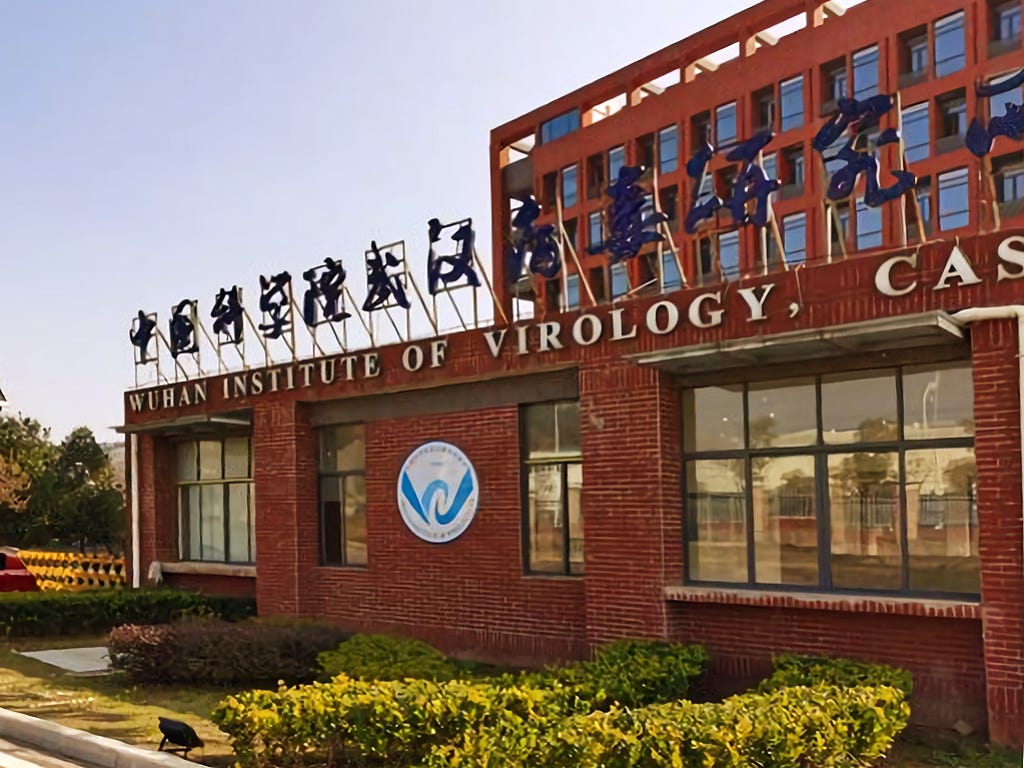Scientific Leadership on Covid-19 Origins
The scientific community may hold information that is important in understanding Covid-19 origins
In an interview with KHN published today, Alina Chan of the MIT Broad Institute made an important observation about information held by the scientific community which is possibly relevant to understanding the origins of Covid-19.
[W]hile China has shut off its laboratories to outside inquiry, that doesn’t mean all investigative avenues are closed, Chan said. Many Chinese scientists were in contact with colleagues and journals outside the country as the pandemic emerged. Those communications may contain clues, Chan said, and someone should methodically interview the contacted individuals.
From the earliest days that the world became aware of the novel coronavirus, questions were raised about research on the disease.

Chan has also expressed concern that “It's so ridiculous that finding out more about these papers describing some of the closest relatives to SARS-CoV-2 - providing clues as to its origin - has to involve a suite of internet sleuths and science hobbyists.” She is referring specifically to the unearthing of theses completed in China that revealed that the closest relative to SARS2 apparently originated in a mineshaft in 2012. The “guerilla group” of sleuths (for lack of a better term) have undeniably contributed much new information to the discussion of Covid-19 origins.
The discovery of of of the theses necessitated a clarification to be added to the first paper that sequenced the SARS2 genome at Nature by researchers at the Wuhan Institute of Virology. Oddly, the relevant sequence was renamed by the WIV but not acknowledge, a fact that was only disclosed long after publication. There is also suggestive evidence that sequences of other genomic samples were run, but not deposited in genomic repositories.
These issues only begin to scratch the surface of what is a complex and technical set of questions involving at least 9 different papers, many authors (with some appearing on multiple papers), even more reviewers, across multiple genomic repositories, journals and pre-print servers. Chan has produced the following timeline which summarizes some key information on some of the most important papers. You can find the many questions raised by this timeline at this 30-part Twitter thread Chan put together last October.
What is needed?
The scientific community — and by that I mean an organization like the InterAcademy Partnership, or the U.S. National Academy of Science or British Royal Society — should convene an independent expert committee to review all correspondence, data and evidence related to these papers, theses and pre-prints that are in possession of the relevant academic journals and relevant genomic sequencing databases, but which is not otherwise available. This would require high-profile journals such as Nature and PloS to open up their files involving their authors for independent scrutiny. Key participants involved in the relevant research and publication should also be interviewed by investigators, and be asked to provide relevant correspondence.
Such an investigation could begin by allowing the investigators to have confidential access to the relevant materials, with an understanding that information would only be more broadly shared in the event that anomalies or questionable findings result. Who knows, perhaps the information not readily available provides perfectly innocent explanations for the large set of questions raised by Chan and others.
If so, that would be excellent to know. And if not, obviously that would be important to know as well.
The bottom line is that the scientific community holds in its possession information that may potentially be relevant to important questions of Covid-19 origins. There is a compelling obligation to the public for the scientific community to not just open itself up for scrutiny, but to take responsibility for conducting that scrutiny, at least initially.
There is no downside to such an investigation. The resulting findings may not tell us anything more about Covid-19 origins, but even in that case it would tie off some loose ends and demonstrate the community’s commitment to the broader public good.






"should convene an independent expert committee to review all correspondence, data and evidence related to these papers, theses and pre-prints that are in possession of the relevant academic journals"
Ha! Knock yourselves out.
Dr Chan is actually referring to a new set of theses from July 2019 which described the clade of around 9 virus sequences that Sars CoV-2 belongs to. These 9 sequences (or rather RdRp segments) were published in Nature in August 2020 - but Dr Chan and her "internet sleuths" were too incompetent to check the supplementary materials. They were also named by Dr Shi Zhengli in a talk at Rutgers University in March 2021. Aside from RaTG13, the other 8 viruses I believe are only 90% similar to Sars CoV-2
The fact that there is a paper thesis from July 2019 describing this entire clade WITHOUT Sars CoV-2 would - to any sane person - be powerful evidence supporting the WIV's claim that this virus had not been known to them. But conspiracy theorists are never looking for evidence that tends to discredit their theories, only evidence that supports them.
Anyway, just to say I am all in favor of your committee of Americans or British to snoop through all pre-prints and emails etc.